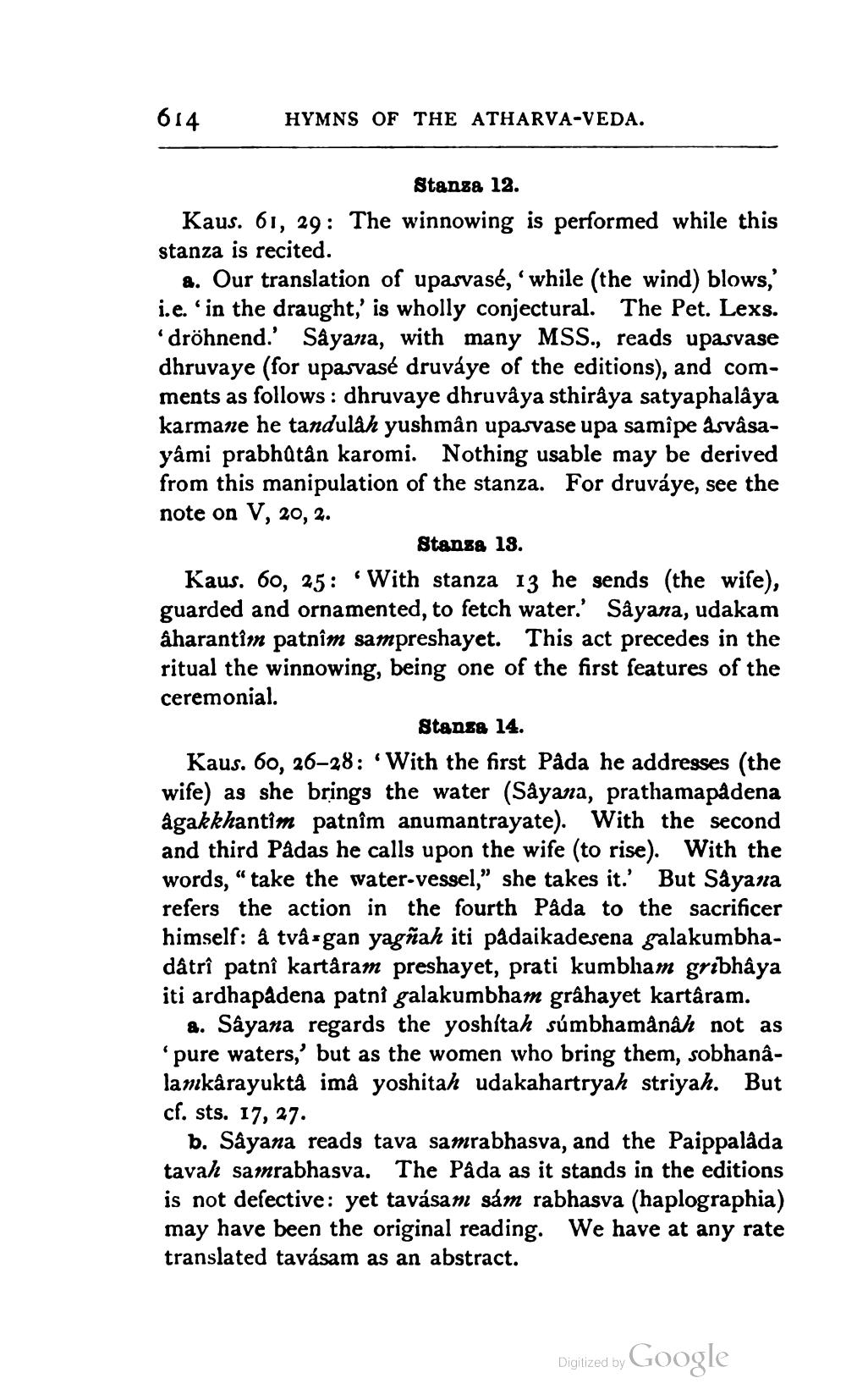________________
614
HYMNS OF THE ATHARVA-VEDA.
Stanza 12. Kaus. 61, 29: The winnowing is performed while this stanza is recited.
a. Our translation of upasvasé, 'while (the wind) blows,' i.e. in the draught,' is wholly conjectural. The Pet. Lexs. 'dröhnend.' Sayana, with many MSS., reads upasvase dhruvaye (for upasvasé druvaye of the editions), and comments as follows: dhruvaye dhruvåya sthiraya satyaphalaya karmane he tandulâh yushmân upasvase upa samîpe asvâsayâmi prabhatan karomi. Nothing usable may be derived from this manipulation of the stanza. For druvaye, see the note on V, 20, 2.
Stansa 13. Kaus. 60, 25: With stanza 13 he sends (the wife), guarded and ornamented, to fetch water.' Sâyana, udakam áharantim patnim sampreshayet. This act precedes in the ritual the winnowing, being one of the first features of the ceremonial
Stansa 14. Kaus. 60, 26–28: With the first Pada he addresses (the wife) as she brings the water (Såyana, prathamapadena agakkhantim patnim anumantrayate). With the second and third Pådas he calls upon the wife (to rise). With the words, "take the water-vessel,” she takes it.' But Sayana refers the action in the fourth Pada to the sacrificer himself: å tvâsgan yagñah iti padaikadesena galakumbhadâtrî patni kartåram preshayet, prati kumbham gribhaya iti ardhapadena patni galakumbham grâhayet kartaram.
a. Sayana regards the yoshitah súmbhamanah not as 'pure waters,' but as the women who bring them, sobhanalanıkârayuktà imå yoshitah udakahartryah striyah. But cf. sts. 17, 27.
b. Sayana reads tava samrabhasva, and the Paippalada tavah samrabhasva. The Pâda as it stands in the editions is not defective: yet tavásam sám rabhasva (haplographia) may have been the original reading. We have at any rate translated tavásam as an abstract.
Digiized by Google




